By Alexander Barty
Given the scale of my Pravah ICS experience, you might assume that I had planned and anticipated my journey to India years in advance. The reality was quite the opposite. I stumbled across ICS by chance, when putting together the master plan for my impromptu gap year between school and university. With the intention of studying English at undergraduate level, and pursuing the Law as an academic avenue further down the line, the length and breadth of my research was focused on English Language teaching and legal apprenticeships. However, as I began to dig deeper in the complex web of information that is the internet I realised that neither of these experiences alone would be fulfilling for me. When I discovered ICS, I was elated with joy, for I had found something where I could work with young people, and hence put my teaching skills to the test, and tackle inequalities, something directly relevant to the world of Law and Justice that I want to become a key part of in the not so distant future. Within a matter of weeks, I had applied for the job, worked my way through the interview process, and attended my pre-placement training. The wheels were in motion for my Pravah ICS journey to really begin.
Fundraising was a daunting concept for me as, whilst I did have experience collecting money for organisations like St John Ambulance in the past, I had never had so much responsibility so as to run the entire endeavour on my own before. I scribbled down ideas on a piece of flipchart paper, with impressive activities like the ‘Three Peaks Challenge’ and the ‘South West Coast Path’ all at the fore of my imagination. Contrary to what I believed, the small scale fundraising projects that I pioneered were what got me to India in the end. Raffles and tombolas in my family coffee shop, and bucket collections around the villages in the Winterborne valley got me well on my way to achieving my crucial £800 target. Once I had met this figure, a number which, in retrospect, seemed so huge that I feared the reality of my journey into the depths of rural Rajasthan would never come to fruition, I really did start to realise the significance of the Pravah ICS journey to my development as a person. I had challenged myself, and overcome what seemed like the impossible, before my journey had even begun.
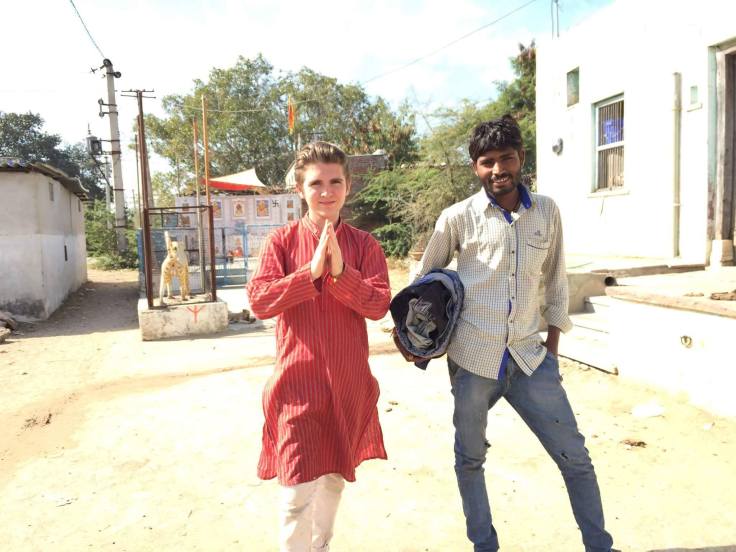
Albeit exciting, the concept of leaving home for three months to travel to a distant land, was certainly a daunting concept. Just a day before my flight, when I was walking along the truly breathtaking Jurassic Coast between Lulworth Cove and Durdle Door, it dawned on me just how much I was going to be ‘missing out’ on in my travels overseas. Yes, the luxuries of a bath tub and a television were going to be difficult to let go of, but it was the notion of home; in terms of the people that I love and the coast and countryside that I have grown up around that I felt I would be unable to manage without. I had never lived away from home before, and this was going to be a real challenge for me. But as I would soon learn, it was the difficulties of decisions like this that my journey would be all about. How was I to know where my journey, which would begin in a small Victorian train station in rural Dorset, would take me?
As the train glided through the alien landscape of the New Forest and passed the spires of Winchester Cathedral, I felt the reality of my journey’s longevity set in. This was no ordinary trip to London; it was a grand expedition between two disparate continents that would ultimately end in a place incomparable with the West Country village that I called home. With the squeak of the wheels as the train came to a halt at Heathrow, a feeling of trepidation suddenly overcame me. I scarcely knew where I was going and, given that I attended the training for Jatan’s February Batch, I had no clue as to who I would be travelling with either. When dawn broke and I embarked on the departure gates, I was comforted by the familiar faces around me and the supportive smiles of those I had yet to meet.
By the time my flight touched down in Delhi, a string of mango juice drinks and a few thousand miles later, a strong team dynamic had emerged between us volunteers. My illusion that the January volunteers would somehow expulse me and my February colleagues from the group was proven to be little more than nonsense, and we all worked our way through the airport cheerfully, discussing what might be waiting for us around the corner. Soon enough we found out that would be Logan!
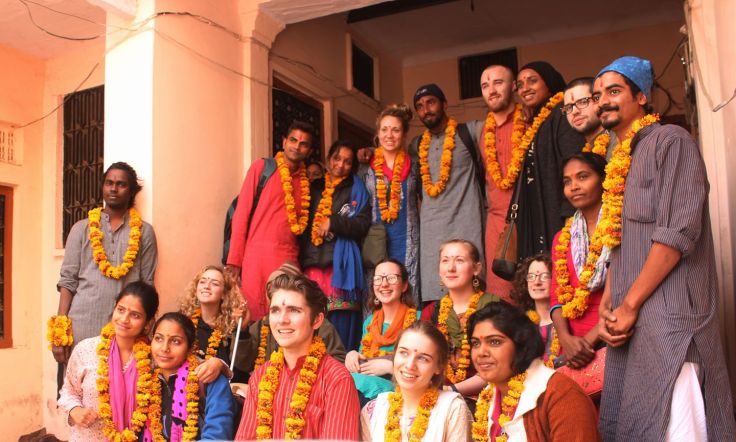
On a rackety, gaudily decorated bus, synonymous with my preconceptions of India, we crossed the sea of people, rickshaws and cows that was Delhi to arrive at the YMCA. This would be our place of residence for the next few days as we found our feet in this strange and exotic land.
With our eyes half-closed and our faces washed of any colour by the long journey that we had just undertaken, we were not the best audience for the Indian volunteers as they greeted us with a symphony of traditional music and dance. Nonetheless, indelible bonds emerged from Day One, and the cheeky smirks of individuals like Amitesh, Mubarak and Fouziya more than compensated for the sickly chai and rubbery cheese that would be served up for us in the YMCA canteen.
As the training sessions whizzed by, interrupted only by a lone monkey or two, the reality of our happy and healthy group being torn apart really set in. A plethora of emotions encircled the YMCA on the day that the Mantan volunteers bid their farewells. I for one was devastated to see faces disappear, but the evening entertainment that we staged on our final night together certainly eased the blow.
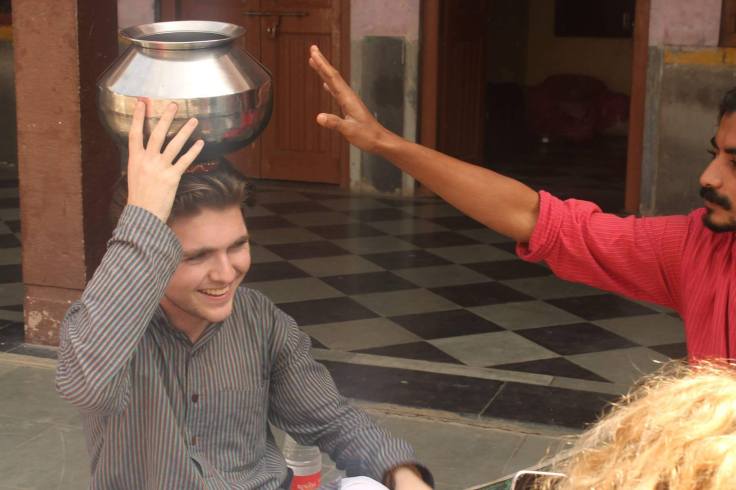
Next up on the agenda was In-Community Orientation, the final hurdle before we embarked on our communities. Here, I finally learned to adapt to eating food with my hands, and to handle more delicate matters that I would rather not go into! These, of course, would be very important as I integrated into village life. However, at the forefront of my mind was who my counterpart would be. I looked disconcertingly across at the then familiar faces of Logan and Astha, unsure whether they had finalised their plans, or if their ongoing assessment was still in its early stages. I even devised formulae based on gender, relationships and personal attributes to predict my fate. Little was I to know that I would discover my counterpart in a darkened room, echo locating him with peculiar animal noises!
When I opened my eyes to find the mischievous moustachioed Mubarak looking back at me, I was more than happy. I knew that our mutual interests and shared zest for travel, and indeed life in general, would make our imminent experience in the community all the more liveable.
At the final leg of my long, tiresome journey half way around the world, I found myself arrive in the community that I would soon call my own. Greeted by dirty, sewage ridden streets and decaying concrete boxes that somehow qualified as houses, I was not initially impressed by the village. But as I entered my host home to find a handful of welcoming faces, who I would soon know as Mummy, Papa, Vikram and Sangita, my initial disappointment was more than overcome.
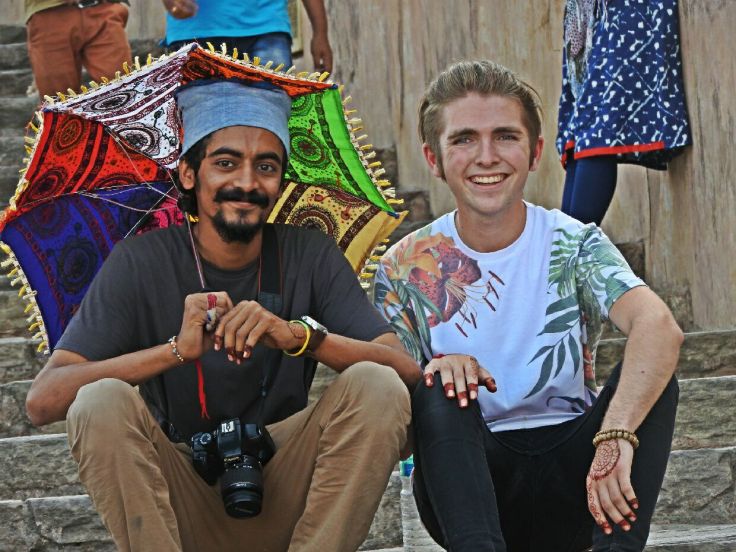
In the coming weeks I really bonded with Vikram, my host brother. He joined us for lunch every day, played cards with us in the evenings, and supported us during our weekly milk collection for the aanganwadi. His premature absence as he embarked on his own journey to Mumbai, where he opened a shop of his own, was difficult. Looking back, Mubarak’s and my pleas for him to stay were more driven by selfishness than by real concern for his welfare, but at the time the concept of the family member that we had built a strong bond with disappearing in a matter of weeks was heart-wrenching.
However, my relationship with the rest of the family was in no way weak, and in the weeks immediately after Vikram’s departure it grew stronger and stronger. We soon became involved in everyday chores like pea popping and wheat sifting as a family, and had numerous discussions about the similarities and differences of our cultures, languages and beliefs. An obvious catalyst of conversation was food. Not only did we have a wealth of fantastic chefs in our house, we also had a mutual love for cooking, sharing the dishes that we made in our own homes and the herbs and spices we prefer.
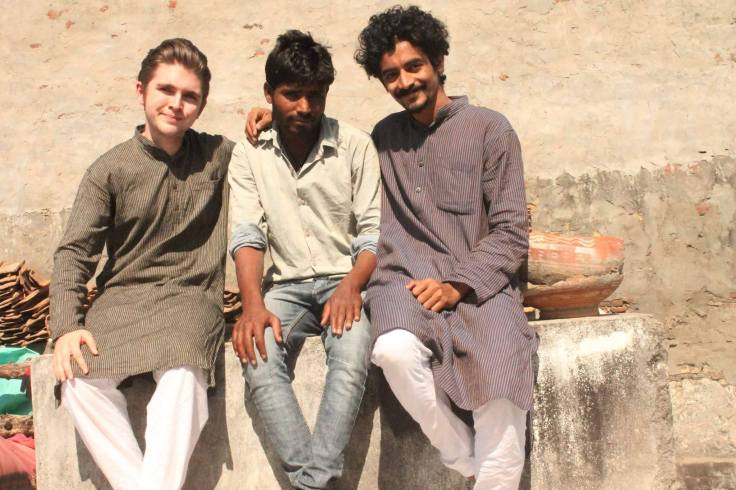
As a group, we learned that chai was just as much a vehicle for conversation as food. We learned, from our chai stops around the village, how different the villagers were in their attitudes, opinions and beliefs. Some individuals would support our efforts to overcome divides in caste, religion and gender whilst others would stand by a more traditionalist viewpoint. Nonetheless, we started to understand where problems lay and in which areas we needed to work to drive change:
Caste undoubtedly benefited some more than others. Gypsy families on the outskirts of our village were fiercely oppressed by the ‘nobler’ of villagers, banned from entering the centre of the village and forbidden from accessing temples and other smaller shrines. However, our efforts helped alleviate this barrier, with the locations of our events always designed to allow equal access to all.
Religion was not an issue dividing the village per se, but this was more as a result of the overwhelmingly Hindu population than liberal attitudes towards different religious beliefs. Mubarak and I shook the notions of our host family in the short time that we spent with them. Mubarak’s religion, Islam, they at first held unfair prejudices against, and my religion, Christianity, they had never come across before, but we soon began to understand and respect each others’ viewpoints on the world.
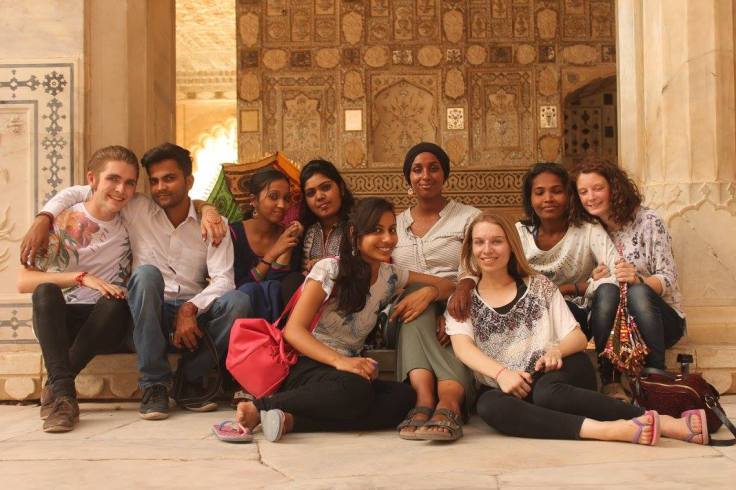
Gender was undoubtedly the biggest divide in our village. I was shocked by how women were entirely responsible for the housework, despite the fact that they also worked hard on the fields during the day. Men on the other hand, were often unemployed, passing their time in the chai shop. A damning example of this gender divide was, again, within my own host home. Khushbu, the wife of my host brother Vikram, was forced to cover her face, complete all of the housework, and wait on the men in the house on hand and foot. She was not even allowed to leave the house, meaning she was a prisoner in her own home, just because she had been married. Her contrast with the strength of Sangita, my empowered host sister, showed how inequalities in Rajasthan in general apply to married women. It was important that we understood these issues in the community before we tackled them, as they greatly differed from what we know about sexism in the Western world.
My experiences with Khushbu were what made me determined to make our Women’s Group a success. I suggested Women’s’ Institute style events with an Indian twist, with competitions for application of Henna rather than for making the best cake, and Mewari singing instead of country dancing. This proved to be a roaring success, with a regular attendance showing that women were willing to take a time out of their busy routines to come together and enjoy themselves once in a while. They even organised their own International Women’s’ Day event, a sign of their growing independence, and commitment to substantially enhancing the position of women within the patriarchal community.
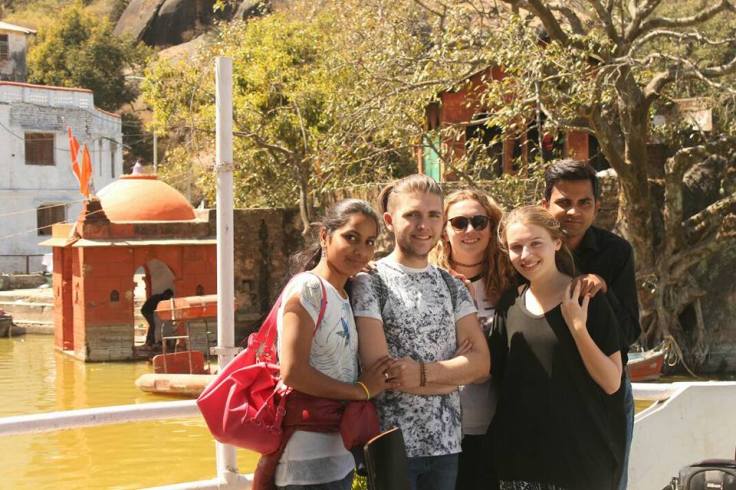
Our youth group, ‘Rising Morra,’ had an even more profound impact on community life. The games and activities incorporated into the sessions ensured record numbers turned up, with as many as 40 on some occasions, and an average of 27 overall. Boys and girls, regardless of caste, came together to have fun, not realising the divisions that they were breaking. Whilst this was amazing in itself, the youth group took itself even further in driving change, driving critical community projects.
They were also key to the success of our first ‘Community Action Day on Cleanliness’ as they set a precedent by picking up a brush and helping to clean the streets. More followed, and soon enough the whole village were out and about changing the face of the village. With music pulsating through the streets as the event drove on, the atmosphere was astonishing, and one which I shall surely never forget. Dancers and singers from the youth group took to the stage for the evening entertainment, pulling the community together for an unforeseen discussion on the issues with hygiene, sanitation and littering in the village. With a powerful voice from the community that more needed to be done, and events like this should keep taking place in the future, the impact was undeniable.
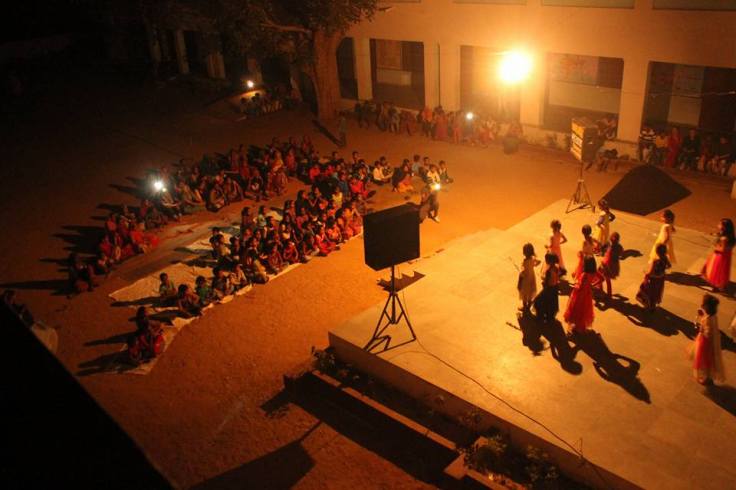
Whilst they might not have been the most exciting part of my journey, surveys were certainly crucial in ensuring that the community went in the direction we intended. Environmental quality surveys might not have been fun in themselves, but the fact that the results showed positive changes in litter cover in the village after our cleanliness CAD was hugely uplifting. Similarly, our feedback surveys showed overwhelming support for our efforts. This was a real boost for team morale, as sometimes we and the youth group felt a little disheartened by the intangibility of the changes within our village.
What was most amazing about the youth group was how sustainable it became. With members not just planning youth group sessions, but also their own ‘Community Action Day on Gender Equality’, they will surely become key community leaders in the future. Some figures, like Dinesh, who became an integral part of our team unit, set themselves the role not just of leading the youth group, but of preparing for it, realising how important self-sufficiency is to the group’s survival as a driving force of change in Morra. As a result, mobilising young people, fundraising for resources and raising awareness of key issues became jobs that they began to take increasing responsibility for. As time progressed, the milk collection for the Aanganwadi, which ensured that the toddlers in the community have a healthy lunch, also came under the jurisdiction of the increasingly significant team of young people.
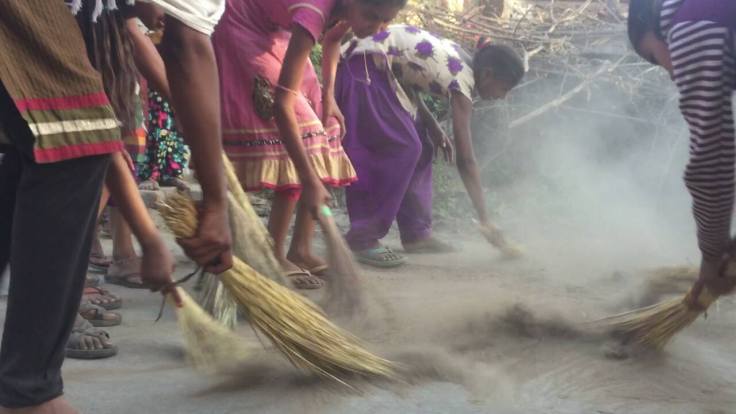
Whilst their own effort was a roaring success, the youth group were also keen to support us on our own ‘Community Action Day on Health’ just a week later. They learned how to run more interactive activities to keep the audience engaged from start to finish. My own activity, ‘Paper Planes,’ saw the audience match the injuries and treatments found on individual planes up with each other, getting them thinking about day to day first aid. They soon learned that rubbing dirt in a wound to cover it is not a practical solution! More intimate sessions on menstrual health also had a profound effect at overcoming taboos in the community. Undoubtedly, what we taught will have a long lasting impact. And, with the youth group inspired to run similar events in the future, there is room for greater change.
Undoubtedly, Mid-Phase Review was a high point of my experiences in Rajasthan. I was a little disappointed to see that the Italian restauarant I had heard so much about was actually a Domino’s Pizza, and that the Jain monasteries were all booked up, but despite this misfortune Mount Abu was a truly awesome experience. The sun disappeared into the crimson sky like a gold coin being dropped into the water as it set at magnificent Sunset Point. The view was exceptional, as was the company. Never before have I seen the team so closely knit, willing to share their problems, their celebrations, and of course their ideas for the times ahead. It was a truly unforgettable experience.
My only regret from Mid-Phase Review was eating the eggs at the hotel! My experience on a drip in the dingy hospital in Railmagra, where I was treated more like a prisoner of war than a Pravah ICS volunteer, was certainly not one of my journey’s most glamorous moments. Nonetheless, the support I received from Logan and the Pravah ICS team in the form of coach-loads of oranges and motivational comments soon ensured I was up and well. I will never forget the kindness that my Mummy ji showed me when she stayed up an entire night by my bedside, nursing me back to health.
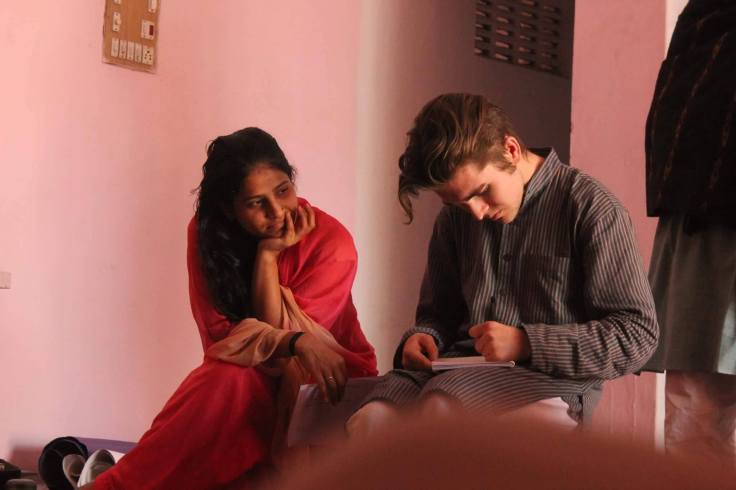
Having been bed ridden for a number of days, I threw myself in at the deep end when it came to drafting a petition to resolve the drainage problems in Morra. This was something that really excited me, as I was keen to see some tangible impact of our efforts in Morra. Once the translation was returned by Sumitra ji we got started on collecting signatures. The hours were tiring but we saw an impressive response, with the efficiency of certain individuals in the group like Sonam and Kritika meaning we covered near enough the whole village. With more than 130 signatories, the petition represented well over half of the households in the village, providing a seriously compelling argument for the Surpunch to invest in a drainage project, or at least pursue other routes which would help alleviate the problem. Impassioned responses from some senior members of the community, and other lesser known citizens who have been directly affected by the problem, makes me really anxious as to what the outcome of the project will be. One lady, who invested the money left in her husband’s will to connect her house to mains water supplies, only to find it switched off by the Surpunch, really compelled me to speed up on the delivery of the petition. With the support of local residents, and of course Jatan, we hope to see these plans implemented sensibly and quickly.
We also pursued local government in the hope of attaining a wheelchair for Kavida, a fourteen year old girl suffering with a disability in the community. With the long bureaucratic process proving near enough impossible, Mubarak came to the rescue with a plan. Through pursuing funding through his own NGO, he has been able to order a state of the art wheelchair for Kavita, who has been unable to visit the local school because of her disability. The satisfaction of knowing that she will have a wheelchair and be able to attend school has been a real highlight of my journey.
Holi too was undoubtedly one of the more colourful memories of my Pravah ICS experience! This adrenaline fuelled commotion provided hours of laughter, and reminded me how much Rajasthan has to offer just as life appeared to uptake a rather monotonous routine. Whilst we might uphold Christmas as the envy of the world, the truth is that other festivals can be just as fun if we just give them a go. It was amazing seeing the then brightly coloured villagers come together. Never before have I been offered such delicious food by so many people! Pakora and poppadums were undoubtedly the highlights of the whole Holi experience. Undoubtedly this challenged my perceptions of development, as I would never expected a community of people who have so little to be so prepared to share.
English Lessons were an important part of my journey, as I could give something back to the villagers who had given me so much during my stay. I was also afforded a unique opportunity to put the skills I had learned completing my CELTA course in the first portion of my gap year to the test, and to build a further bridge between the programme and my intention of completing an English degree. Whilst, given the English level of the students in the village, my lessons were limited in their scope, they did teach villagers some basic conversational skills so that they could form basic adjacency pairs with each other and the other UK volunteers. I could try out some different teaching techniques not just during these lessons, but also at other spaces on the programme where I had more a free reign.
Undoubtedly, Active Citizenship Days were the foremost of these. It was beneficial for me completing an ACD on Climate Change, not only because I could practice teaching skills, but also because during the planning and preparation stages I could consider the effects of climate change, a project on which I intend to complete when I return home. I believe fellow volunteers were engaged in the sessions, in part because of the various party-themed energisers I incorporated, like ‘Pass the Parcel’ and ‘Simon Says,’ but to a greater extent because they had a real interest in the issues involved in the session, which were tactically linked back to the communities of Morra and Sadri. I also really enjoyed taking part in ACDs facilitated by other counterpart pairs. This is mainly because the room that they left for debate appealed to my interest in Law, and the tangible effects of attending such programmes therefore were directly apparent to me. However, it is also because they provide a space to reflect on the week and consider steps forward, making me a more productive member of the team.
Given my success at planning sessions for English Lessons and ACDs, debrief was an unexpected obstacle for me. I invested a great deal of time and effort in the sessions that I planned, and worked very hard on the feedback that I received, but the apparent critique of my efforts undoubtedly affected my self-esteem. When paired with the daunting prospect of leaving the village and saying goodbye to my host family, this became more of a problem than it should have been. Fortunately, when we condensed our plans and started looking forwards to the exciting prospect of a trip to Jaipur, I started to build myself back up so that I was more than prepared to start working on our critical portfolio for handover.
With so little time left in Morra, it is of course important to look back at what has been achieved and where this might take the village in the future. However, it is important, if not more important, to look at the impacts we have had on individual people, and the amount of time and effort we have invested in making this community, so far from our own homes, a better place. One thing I am more than sure about is that I will take away magical memories of a wonderful, dynamic place and a great group of friends that I will hold dear regardless of how often I will see them in the future.
(Alexander Barty volunteered with Pravah ICS from January – April 2017 and was placed with partner organisation Jatan Sansthan in district Rajsamand.)

Leave a comment